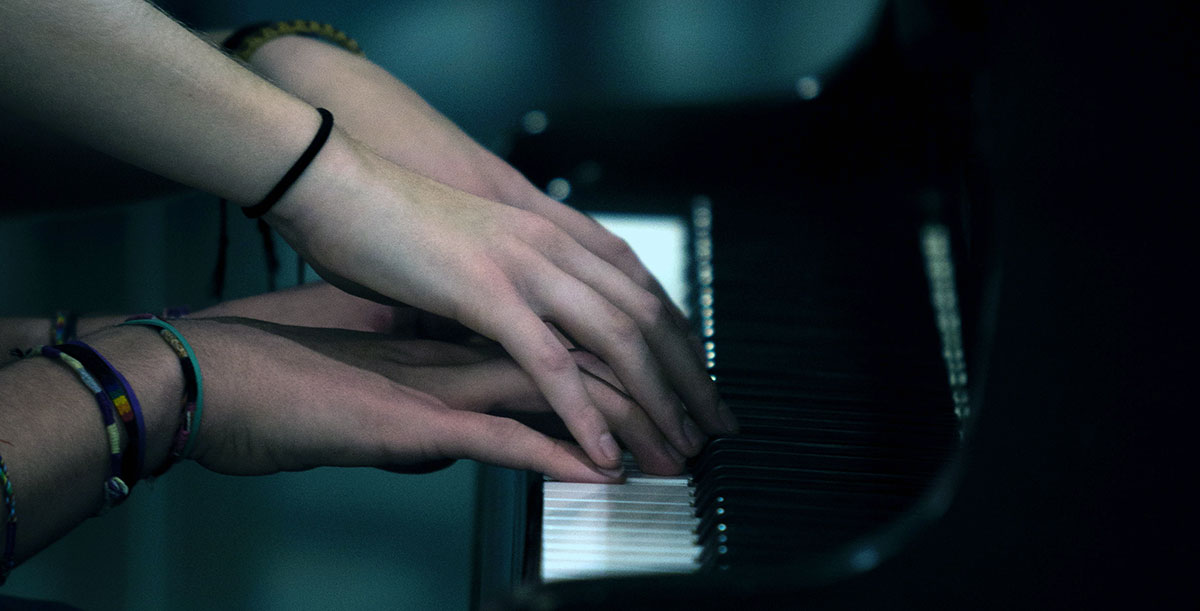The Luck of Love – Part Two

With Margo and Jo
‘We’re lesbians,’ said Margo, on the first day I met them. ‘If you can’t deal with that, we won’t employ you.’
Every family in my country has an aunt who lives with a special friend or a cousin who shares his life with a man he met in the army or in a bar. We don’t attach words to it but we accept them. The English seem to think they invented homosexuality.
‘I’m a composer,’ Margo said. She teaches piano to school children and she’s been working on an opera for ten years. The opera will never be completed. She wears her hair a little wild and she tilts her head so that she resembles a bust of Beethoven.
Jo is a carpenter and she makes sets for theatre companies. She has short blond hair that stands up on her head and her fine-boned, symmetrical face is a pleasure to look at. She is about twenty years younger than Margo.
They knocked down the internal walls of their small terraced house in South London, put windows in the roof, and Jo made fitted furniture for all the rooms so the house feels much bigger than it is. They can’t afford a cleaner but they have me once a fortnight because Margo says she can’t take time from her opera to do her share of the cleaning.
I was defrosting their fridge last Tuesday while they were having a goat’s cheese salad for lunch at the ash breakfast bar in the kitchen. Der Rosenkavalier was playing through their multi-room Wi-Fi system.
‘Who will we invite around this weekend?’ asked Jo.
‘Do we have to have people every weekend, darling?’ Margo stabbed a cherry tomato with her fork.
‘It’s fun. We work hard and we need to play. What about Jules and Sylvia?’
Margo looked as if she had a sudden stomach cramp.
‘What does that face mean?’
‘Well, we do see an awful lot of them.’
‘We haven’t seen them for a month.’
‘A month isn’t very long.’
Jo put down the fork of goat’s cheese that was on its way to her mouth. ‘They’re close friends. Why don’t you want to see them? I thought you liked them.’
‘I do like them, sweetheart. I just don’t like what they do to you.’
‘Do to me? I don’t understand.’
‘Well, you always get drunk with them and take coke and you’re wiped out for the rest of the weekend.’
‘It’s a bit of fun. It’s good to let rip now and then.’
‘“Now and then” seems to come around quite often. And they’re so vicious about everyone. I can’t imagine we’re spared.’
‘What do you mean?’
‘I wouldn’t be surprised if they made fun of us when they visit their other friends; Jules is a great mimic. I sometimes think they see us to get fresh material to entertain their other friends with.’
‘Jules wouldn’t do that to me; we’ve been friends since we were at school.’
‘She doesn’t spare anyone.’
Jo stared down at the rocket leaves on her plate as if she was asking their advice.
She lifted her head and said: ‘I’m not going to drop them if that’s what you want.’
‘It’s not what I want, darling. I’m sorry, I didn’t mean to upset you.’ She reached out her hand and put it on Jo’s.
‘I’m not upset.’
‘All I’m saying is that you might find, as you get older, that you don’t see as much of some friends anymore because you’ve changed and you may not have a lot in common. When people reach their late twenties, they divide into two groups: the ones who continue partying like students and they usually end up in rehab years later, and those who do something with their lives.’
‘Old friends are the joists in your life; you can’t discard them.’
‘Some joists begin to rot with age and they can no longer support anything. Have you ever spent an evening with Jules and Sylvia when you haven’t got drunk?’
‘Probably not. But I don’t see why that matters. I have fun with them.’
‘Try it next time they come for dinner; it would be an interesting experiment.’ She skewered a radish that had rolled off her fork.
‘You’ve made your point; you don’t want them to come around so I won’t invite them.’
‘No, no, do invite them. I don’t want to stop you seeing your friends, sweetheart. I’ll go to bed after the meal and you can stay up having fun with them.’
‘They’ll think you don’t like them if you go to bed early.’
‘They’ll forget about me as soon as I leave the room.’
‘It wouldn’t feel right staying up without you.’
‘I get bored listening to the nonsense they talk when they’re off their heads.’
‘Jules can be very funny.’
‘For half an hour and then they both become boorish and repetitive and vicious.’
‘What do I become?’
‘Never vicious, sweetheart.’
‘We could invite them for lunch on Sunday and they won’t stay late because they’ll have work on Monday.’
‘Sunday is the one full day I have to work on the opera and…’
I left the kitchen and hurried upstairs to clean a toilet because I had heard too many of these conversations. There was no narrative tension; the outcome was always the same.
Read The Luck of Love – Part One here and The Luck of Love – Part Three here .
For more short stories, subscribe to our weekly newsletter.














